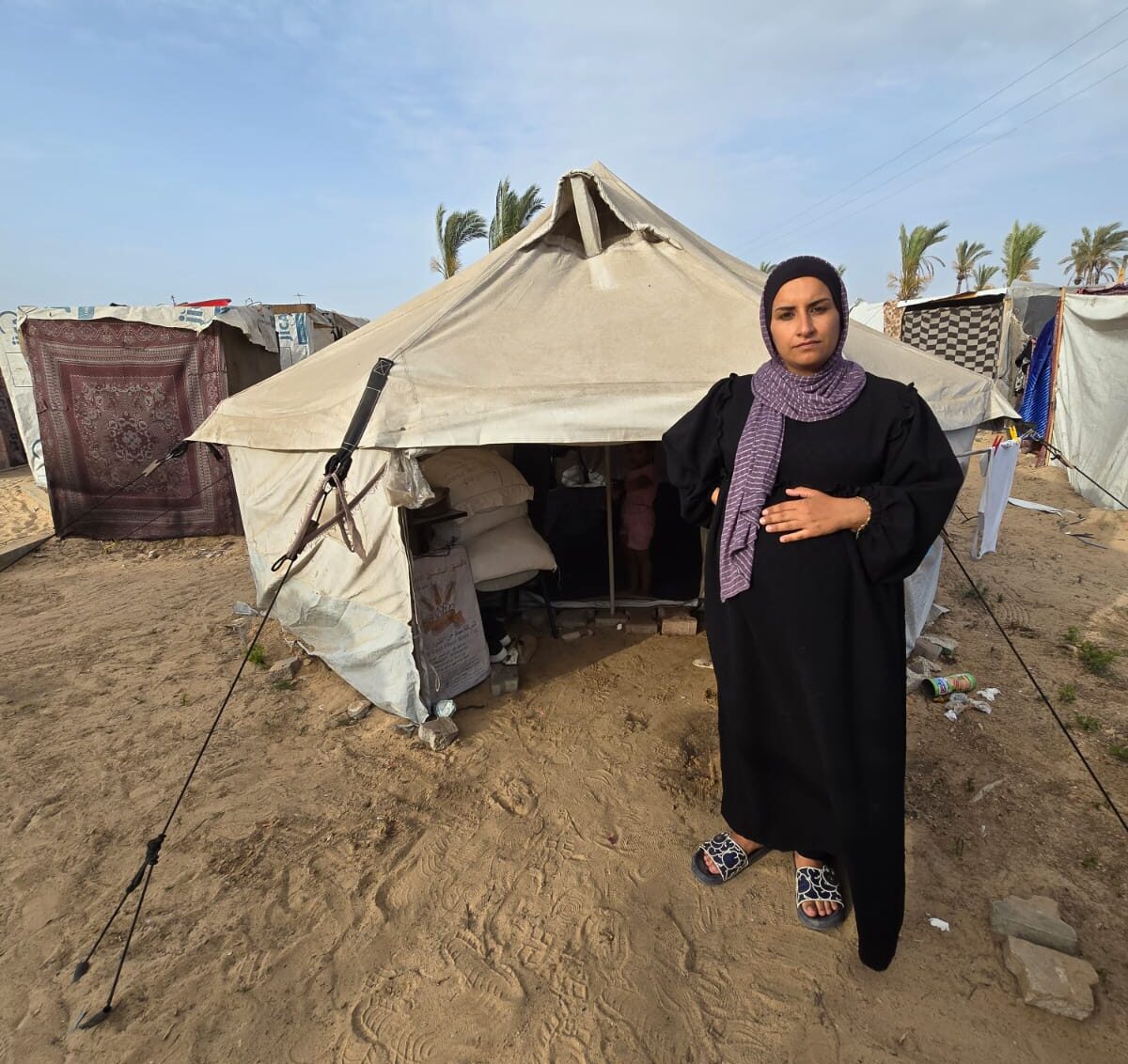One in two women who die during pregnancy or childbirth is in a conflict area, with maternal mortality more than 40 times higher in fragile contexts than it is in developing countries.
These harrowing statistics, from International NGO CARE Australia, have been released ahead of its ‘Maternal Health in Conflict’ campaign, which aims to shed a light on how mothers are often disproportionately affected by conflict.
CARE research shows that there were an estimated 35 million women who gave birth in conflict zones in 2022. The vast majority of these women did so with medical care that did not meet the most basic standards of safety and quality. The impact of this can be dire, for mother, child or both.
In Gaza, pregnant women are 3 times more likely to miscarry1 and 3 times more likely to die in childbirth2. In Sudan, two-thirds of health centres are not functioning, leaving the 150,000 odd pregnant women forcibly displaced by conflict, unable to access proper care3.
Even if women can access the required healthcare, conflict often results in a lack of access to nutrition. In the Democratic Republic of Congo, which is facing persistent fighting, malnutrition threatens over 600,000 pregnant or breastfeeding women due to insufficient food4. As a result of conflict, women are often left with little other choice than reverting to harmful ways to feed their families, including eating less and less often.
Further, many women step into the role of breadwinner as conflict takes men away from their traditional roles. Sometimes, women are the ones who flee with their families, often without their husbands. In both instances, women take on new burdens without letting go of the unequal workloads they already had.
“Mothers in conflict face innumerable challenges, including plummeting healthcare, at a time when these women are arguably most in need. These experiences often lead to higher death rates, even from preventable causes. The challenges are real, and we must do more to address them,” said Emily Janoch, one of the authors of CARE’s Women in War report.
This week, CARE Australia launched their appeal for support to its work that assists pregnant women living in conflict and crisis in accessing lifesaving maternal health care.
Human Rights Activist Khadija Gbla, who fled conflict in Sierra Leone at a young age with her family, before settling in Australia, says:
“I’m supporting this campaign because I have first-hand experience of being in a conflict zone. My mother had two daughters, one disabled and neurodiverse, and had to raise my sister and I after we were displaced. As a parent myself now, I can’t imagine what that would have been like. I can’t imagine having to carry a baby, and then give birth, amongst the stress of conflict, let alone without adequate healthcare. The very least these women deserve is a safe place to grow, birth and raise their children. Any parent I know would wish the same.”
CARE works to support women by training female health workers on maternal care and emergency obstetrics and funding health clinics in conflict areas with obstetric medical supplies so that women can safely deliver their babies. Donations will go to support things such as providing immediate relief to pregnant women with a kit of essential supplies for birth and postnatal care to ensure mother and baby have everything they need for the first few days.
Please consider giving generously to the Maternal Health in Conflict Appeal today at https://www.care.org.au/appeals/maternal-health-conflict/.
ENDS
Notes to editors
For media enquiries contact Briony FitzGerald on 0404 117 927
About CARE Australia
CARE Australia supports women around the globe to save lives, defeat poverty and achieve social justice. We work in partnership with local communities to provide equal opportunities for women that they have long been denied: the ability to earn an income, gain access to their fair share of resources, to lead and participate in decisions that affect their lives, and to be able to withstand the increasing impacts of climate disasters and other crises. www.care.org.au

